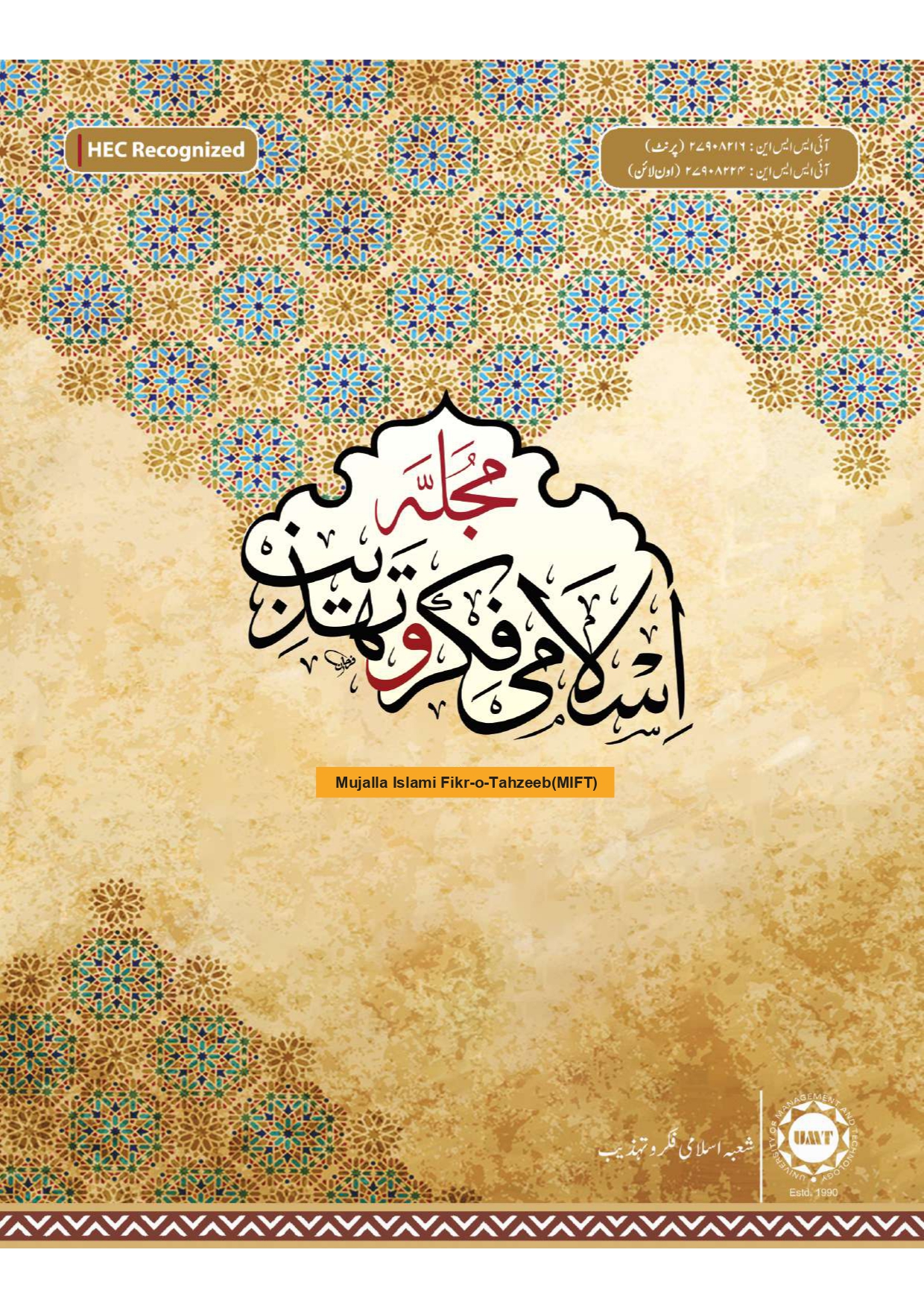موت پر قابو پانے کی انسانی کاوشوں کا تجزیاتی مطالعہ
An Analytical study of human efforts to Control Death
Abstract
 Abstract Views: 0
Abstract Views: 0
In the debates on death in modern era, scientists claimed that death is not a permanent entity but only a disorder of human management that will be controlled very soon. On the other hand, Allah described death with the terms of creation, which means death is not only a disorder but it is a permanent entity and binging of a new life and every living being has to adapt this mold after completing its life period. The difference between ancient and modern deniers of death is that ancient recognized death as an existential being and accepted even if they die, they will become dust. While the modern deniers do not consider death as an existential being, they argue that death is a disorder of human management which will soon be overcome. It is obvious that this understanding and reasoning of death is based on a complete misunderstanding. At most, what death control institutions, research companies, biologists, and capitalists are doing is, just trying to push back aging from human life and they liken it to the control of death. At most, it is possible to push back from human life by better human management, improved diet, cell regeneration and rejuvenation, but even after that, death is ultimate destiny of humanity.
Downloads
References
بلیاوی، عبد الحفیظ، مصباح اللغات(لاہور، مکتبہ قدوسیہ، 1999)
اصفہانی، راغب، المفردات فی غریب القرآن: کتاب المیم وکتاب الحاء) کراچی: نورمحمد کارخانہ تجارت کتب،
آرام باغ، 2008 (
ابن منظورافریقی،لسان العرب(بیروت:دار الکتب العلمیہ،1432ھ)
ابن عباس، عبد اللہ بن عباس رضی اللہ عنہ ، تفسیر ابن عباس( لاہور،مکی دار الکتاب،2009)
ابن کثیرؒ ،ا سماعیل بن عمر بن کثیر،تفسیرالقرآن العظیم(بیروت: دار طيبة للنشر والتوزيع، الطبعة الثانية،
ء)
عثمانی، مفتی محمد شفیع، معارف القرآن (کراچی،معارف القرآن،2002)
وحید الدین خان ، تذکیر القرآن (نیو دہلی: مکتبہ الرسالہ ، 2009ء)
بخاریؒ،محمد بن اسماعیل،الجامع الصحیح للبخاری (کراچی:مکتبہ البشریٰ ، 2011ء)
امام مسلمؒ، مسلم بن حجاج،صحیح مسلم(بیروت: دارالکتاب العربی،1429ھ)
وحید الدین خانؒ ، آخرت کا سفر (نیو دہلی: مکتبہ الرسالہ ،2010ء)
حمید اللہؒ ،خطبات بہاولپور( بہاولپور:،اسلامیہ یونیورسٹی ، 1997ء)
Steele, Andrew, Ageless: The New Science of Getting Older Without Getting (New York:
Anchor, 2021)
Harari, Yuval Noah, Sapiens (Chicago: University of Chicago Press, 2021)
Christopher Hitchens, Mortality (Chicago: University of Chicago Press, 2021)
Sherwin B. Nuland, How We Die (New York: Anchor, 2021)
Elisabeth Kübler-Ross, On Death & Dying (UK, Oxford University Press, 2019)
L.S. Dugdale, The Lost Art of Dying (New York: Anchor, 2021)Oxford Advanced Learner's Dictionary 9th edition (UK, Oxford University Press, 2015)
Copyright (c) 2023 Muhammad Irfan, Hafiz Muhammad Rashid

This work is licensed under a Creative Commons Attribution 4.0 International License.
Authors retain copyright and grant the journal right of first publication with the work simultaneously licensed under a Creative Commons Attribution (CC-BY) 4.0 License that allows others to share the work with an acknowledgement of the work’s authorship and initial publication in this journal.



